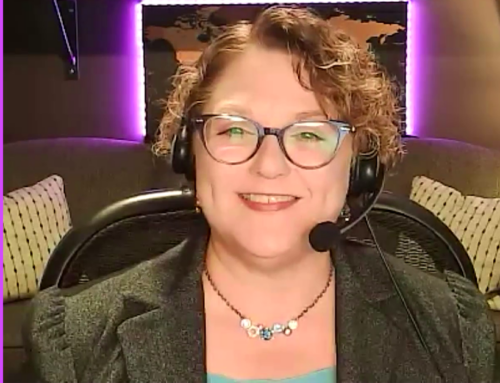There are few things more detrimental to our wealth than the negative money stories we pickup in our youth that haunt us as adults. And there are few things more impactful you can do as an advisor than to understand your client’s money stories and work with them as you engage in your planning relationship.
Let’s face it, we all grow up with hang-ups around money. In those formative years of our upbringing, we start to absorb the financial habits and attitudes that we hear and see modeled in our family and other social relationships. Positive habits, like an emphasis on saving and investing, can set us up well for long-term financial planning. But some negative attitudes, like a fear of market volatility, can cause us to make poor emotional decisions around our money. Over the course of a lifetime, those can be seven-figure mistakes.
On a recent podcast, Dr. Brad Klontz, CFP, told me that he believes the very best advisors learn what their client’s hang-ups are and use that knowledge to work more effectively with their clients. And Dr. Klontz is tackling those hang-ups from two sides: first, as the managing principal of his own RIA, Your Mental Wealth Advisors; second, as the founder of the Financial Psychology Institute and as an associate professor of practice in financial psychology at Creighton University’s Heider College of Business.
Dr. Klontz keeps these businesses and clients separate to avoid any unethical conflicts of interest. But through his unique experience as both a researcher and a client-facing advisor, Dr. Klontz identified four broad Money Scripts that show how our experiences shape our attitudes about money.
To continue reading the rest of this post, please register below with your email address.
Key Insights on Money Scripts
“Money scripts are the typically unconscious beliefs that we have about money that are passed down to us, most often from our parents and our grandparents or our wider culture,” Dr Klontz says. “They all have elements of truth. But we usually latch onto them very early in our lives. Since money tends to be a taboo topic in most families, we don’t really get an opportunity to challenge some of these beliefs.”
But an advisor who identifies these Money Scripts and other important attitudes about money during the discovery process CAN challenge clients to think about their finances in ways that will improve not just their return on investment, but also their Return on Life.
Money Script 1: Money Avoidance
Often, people who don’t grow up in affluent circumstances view having money as a negative. Their parents tell them that rich people are greedy. Sticking to a hard budget and learning to go without certain luxuries creates a belief that there’s virtue in having less money.
And while avoiding greed and living within your means seem positive, Dr. Klontz says that at an extreme, “Money Avoidance beliefs are associated with terrible financial outcomes: lower income, lower net worth, and a whole host of problematic financial behaviors that can be quite self-destructive.”
An adult who’s clung to the Money Avoidance script for most of his or her life might be turned off to the financial planning process. But an advisor who asks good questions about the formative experiences that led to this belief can help the client draw a distinction between being greedy and planning responsibly for the family’s future.
Money Script 2: Money Worship
Just as negative attitudes about wealth can set clients up for financial problems, so too can the belief that having more money will make you happier.
Those of us who work in the financial industry know the classic case studies by heart: lottery winners are no happier than anyone else. To that end, “If you work with a lot of individuals who are of higher net worth, they’re less likely to endorse these beliefs,” Dr. Klotz says, “because they’re living the experience of having problems and having money.” But your clients who do believe more money makes everything better might benefit from a frank discussion about potential overspending, high credit card debt, and unnecessary vanity purchases that can throw off a financial plan.
Money Script 3: Money Status
Social media pressure and the ease of internet shopping have made “Keeping up with the Joneses” more tempting than ever. Dr. Klontz has found that people who invest too much of their self-worth in their net worth might go so far as to exaggerate how much money they make, or how successful they are in their professions.
“These are people who would really want their name on a jet, on a building, and would really want to show the world how important they are, because their self-worth is just intertwined with how much money they have,” Dr. Klontz says.
Money Status is another script for financial disaster: high debt, unnecessary spending, poor saving and investment strategies. But you might also ask a client who’s too wrapped up in Money Status or Money Worship, “What happens when you retire? What happens when you’re done earning money? What kind of a life are you going to have? What is going to fulfill you and make your days worthwhile once there’s no more money to earn, no more status to gain? Do you have plans to use that money in ways that will make your life and your family’s life better?”
I recently talked to Dr. Martin Seay about his work applying positive psychology to financial planning. A core part of Dr. Seay’s work is the idea that psychology and financial advisory are not just tools to “fix” people who have problems. There are also ways to help people who start from a positive place – such as high-net-worth – and guide them to a greater level of fulfillment. Using tools like the PERMA meter that’s popular in Dr. Seay’s field or the ROL Advisor platform Mitch Anthony and I developed can help you reveal negative Money Scripts that are affecting clients who are outwardly successful, but not as happy as they could be. The conversations these tools can spark can help clients re-think their relationship to their money, and your value as an advisor.
Money Script 4: Money Vigilance
“So, we found one belief that’s good, or at least not quite so bad,” jokes Dr. Klontz.
The Money Vigilance script is the one that’s most closely associated with positive financial outcomes, and the kinds of traditional planning advice we advisors are used to giving. People who are protective of their money place a high value on saving for a rainy day – which, to Dr. Klontz’s surprise, isn’t as common a priority as you might think.
Generally, we want our clients to be Money Vigilant – to save, to invest, to plan ahead. But there are negatives associated with Money Vigilance as well. We’ve all worked with clients who never stop worrying about having enough money, which can create real anxiety as retirement approaches. Some Money Vigilance folks become very secretive about their finances, even around their spouses. Couples who don’t talk through their financial attitudes and the experiences that shaped them often develop money conflicts over time, especially if one spouse is more Vigilant and another is more of a Worshiper. These are the kinds of valuable conversations that an advisor can facilitate.
Writing Our Clients a Better Script
Dr. Klontz echoes another key point from my podcast with Dr. Seay: no one is suggesting that financial planners should be psychoanalyzing their clients. They’re also not suggesting that the tools that are emerging from this exciting new research are cure-alls for clients who are struggling with their money hang-ups, or for advisors who are struggling to transform their practices.
“One of the primary limitations in any test or tool is, it’s never a conclusion,” Dr. Klontz says. Rather, you can use these types of tools and assessments to have more effective conversations with your clients.
So this new approach to financial advisory isn’t diagnostic – it’s a way to combine scientifically-sound concepts with human storytelling to engage clients in their financial planning like never before.
But once you’ve identified scripts, habits, beliefs, and behaviors revolving around money, the advisor’s real work begins: helping your clients rewrite those Money Scripts so that they can live the best life possible with the money they have.
That rewrite will require an ongoing conversation – one that can create clients for life.
Resources
– The Klontz Money Script Inventory Click here to take Dr. Klontz’s quiz and have a full report on your Money Scripts emailed to you.
– Financial Psychology & Behavioral Finance Programs at Creighton University Visit Dr. Klontz and learn more about Money Scripts.
– The Conversation Intervention Dr. Klontz’s method for has helping couples have a different conversation around money, setting the stage for increased empathy and an enhanced ability to negotiate solutions to money conflicts that were previously at an impasse.
– The Wealthy: A Financial Psychological Profile A study Dr. Klontz partcicipated in that explored stereotypes about the wealthy.
– Dr. Martin Seay at the Kansas State Institute of Personal Financial Planning
– The ROL Index A tool Mitch Anthony and I developed to help advisors measure their clients’ well-being in 10 aspects of life.
– PERMA Meter Dr. Martin Seligman’s tool for measuring well-being can be a great resource for advisors.
– Values Clarification Toolkit Click here to download this FREE tool and start living your values.





